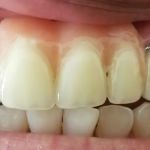The Benefits of Periodontal Surgery: A Deep Dive into Gum Health
- What is Periodontal Surgery?
- Why Periodontal Surgery Is Necessary for Some Patients
- The Benefits of Periodontal Surgery for Long-Term Health
- Steps Involved in Periodontal Surgery: What to Expect
- Real-Life Case Study: How Periodontal Surgery Improved Quality of Life
- Post-Surgery Care: Essential Tips for a Speedy Recovery
1. What is Periodontal Surgery?
Periodontal surgery is a dental procedure that focuses on treating gum disease and its underlying issues. Gum disease, or periodontal disease, occurs when the tissue surrounding the teeth becomes infected due to plaque buildup. In severe cases, it can lead to the loss of teeth and bone structure, making periodontal surgery essential to restore oral health.
I’ve seen firsthand how periodontal issues can progress from simple gingivitis to severe periodontitis. For example, I had a friend, Mike, who initially ignored his bleeding gums, but over time, the condition worsened to the point where surgery was the only viable option to save his teeth. This story highlights why it’s essential to catch gum disease early and seek treatment before it escalates.
2. Why Periodontal Surgery Is Necessary for Some Patients
For many patients, periodontal surgery becomes necessary when non-surgical treatments—such as deep cleaning and antibiotics—are not enough to combat severe gum disease. Here are some reasons why surgery may be needed:
2.1 Advanced Gum Disease
If gum disease progresses to a point where the gums have receded significantly, leaving pockets around the teeth that are difficult to clean, surgery may be required to clean those deep pockets and restore the tissue. I witnessed this with a family member whose gum recession was so severe that no amount of cleaning could fix the damage. Periodontal surgery helped reduce the pockets and promote gum regeneration.
2.2 Bone Loss
When gum disease reaches the bone beneath the gums, it can cause significant bone loss. Periodontal surgery can help regenerate this bone, ensuring that your teeth remain stable. This was the case for another friend of mine, Jessica, who had a lot of bone loss due to periodontitis. Her dentist performed regenerative surgery that helped her bones heal, saving her from needing implants.
2.3 Soft Tissue Repair
Sometimes, the soft tissue surrounding the teeth may need to be repaired or grafted to restore the gums to a healthier state. For patients with gum recession or damaged gum tissue, soft tissue grafting can be an effective solution. I saw how this was the case with a colleague who had significant gum loss, and after surgery, the results were truly transformative.
3. The Benefits of Periodontal Surgery for Long-Term Health
There are numerous benefits to undergoing periodontal surgery, especially if you’re dealing with severe gum disease. Below, I’ll outline the top benefits I’ve observed through both personal experience and the experiences of others:
3.1 Prevention of Tooth Loss
One of the most significant benefits of periodontal surgery is that it can prevent tooth loss. When gum disease causes severe damage to the teeth and supporting bone, it can result in tooth instability. By treating the infection and stabilizing the gums and bone structure, periodontal surgery can help preserve your teeth for years to come. I have a close friend who avoided tooth loss after her periodontal surgery, which completely changed her smile and confidence.
3.2 Reduced Risk of Heart Disease and Diabetes Complications
Gum disease has been linked to serious systemic health issues, including heart disease and diabetes. In fact, treating periodontal disease may reduce your risk of these conditions. I’ve read multiple studies showing that patients who undergo periodontal surgery can improve their overall health by decreasing the inflammation caused by gum disease. For those with diabetes, reducing gum inflammation can also help control blood sugar levels.
3.3 Improved Overall Oral Health
Another benefit of periodontal surgery is the overall improvement in oral health. By cleaning out bacteria and infected tissue, the surgery helps maintain the health of your teeth and gums. Personally, after undergoing periodontal surgery, I noticed a dramatic reduction in gum bleeding and pain, making it easier to maintain oral hygiene.
3.4 Aesthetic Improvements
In addition to health benefits, periodontal surgery can also improve the aesthetic appearance of your gums. For those who suffer from receding gums or uneven gum lines, surgery can help restore a more natural look to your smile. I remember a colleague of mine who struggled with visible gum recession, but after periodontal surgery, her smile was completely transformed, and she felt much more confident.
4. Steps Involved in Periodontal Surgery: What to Expect
If you’re considering periodontal surgery, it’s important to know what to expect during the procedure. While the specific steps may vary depending on the type of surgery and your dentist’s approach, here’s an overview of the typical process:
4.1 Pre-Surgery Consultation
Before undergoing any type of periodontal surgery, you’ll have a consultation with your dentist or periodontist. During this appointment, they will examine your gums, take X-rays, and assess the extent of your gum disease. I was nervous during my consultation, but my dentist took the time to explain everything in detail, which helped me feel at ease and confident about the surgery.
4.2 The Surgery Procedure
During the surgery itself, you’ll be given local anesthesia to numb the area, so the procedure is generally painless. Depending on the type of surgery, the dentist may remove infected tissue, graft new tissue, or regenerate bone. I found that while the procedure was uncomfortable at times, the numbing medication ensured that I didn’t feel pain during the surgery.
4.3 Post-Surgery Care
After the surgery, you’ll need to follow specific instructions for care and recovery. This typically includes taking prescribed medications, using a special mouth rinse, and avoiding certain foods. I made sure to follow my dentist’s post-surgery advice closely, which sped up my recovery and ensured the best possible results.
5. Real-Life Case Study: How Periodontal Surgery Improved Quality of Life
A personal case that stands out to me involves a close friend, Sarah, who was struggling with severe gum disease. She had tried every non-surgical treatment, but nothing worked. After extensive consultations, her periodontist recommended periodontal surgery. The procedure was a success, and within weeks, Sarah noticed a significant improvement in her oral health and overall well-being. Her gum bleeding stopped, and she was able to eat comfortably again without pain or discomfort. Most importantly, her self-confidence soared after seeing the aesthetic improvements in her smile.
6. Post-Surgery Care: Essential Tips for a Speedy Recovery
Following periodontal surgery, taking care of your gums and teeth is crucial to ensuring proper healing. Here are some key post-surgery tips that helped me recover faster:
6.1 Follow the Dentist’s Instructions
Your dentist will provide you with a list of instructions for aftercare. I made sure to follow these to the letter, including using prescribed mouth rinses and avoiding chewing on the treated side of my mouth for a few weeks.
6.2 Eat Soft Foods
Eating soft foods after surgery will help avoid irritation or injury to your gums. I stuck to soft foods like soups, mashed potatoes, and smoothies for the first few days, which helped prevent unnecessary discomfort.
6.3 Regular Follow-Ups
Regular check-ups after surgery are essential to monitor the healing process. My periodontist scheduled a follow-up visit to ensure everything was healing properly. These visits helped me feel confident that my gums were recovering as they should be.
If you're considering periodontal surgery, it's important to consult with a professional who understands the intricacies of the procedure. For more information or to schedule a consultation, visit Dentistry Toothtruth.







 Dental Solutions of Deptford4.0 (647 review)
Dental Solutions of Deptford4.0 (647 review) Silver Lake Dental Care: Andrew Sholudko, DMD4.0 (113 review)
Silver Lake Dental Care: Andrew Sholudko, DMD4.0 (113 review) Dentistry at 1818 Market Street4.0 (686 review)
Dentistry at 1818 Market Street4.0 (686 review) EON Clinics4.0 (24 review)
EON Clinics4.0 (24 review) New Millennium Dental Group3.0 (30 review)
New Millennium Dental Group3.0 (30 review) Amber L. Pearson, DDS3.0 (2 review)
Amber L. Pearson, DDS3.0 (2 review) The Importance of Oral Health Education During Pregnancy for a Healthy Pregnancy
The Importance of Oral Health Education During Pregnancy for a Healthy Pregnancy Best Tips for Brushing Your Teeth Properly for Healthy Gums: Essential Techniques for Oral Health
Best Tips for Brushing Your Teeth Properly for Healthy Gums: Essential Techniques for Oral Health Why Skipping Dental Checkups Can Lead to Bigger Oral Health Problems
Why Skipping Dental Checkups Can Lead to Bigger Oral Health Problems Advantages of Porcelain Dental Restorations
Advantages of Porcelain Dental Restorations How Can Diabetes Cause Tooth and Gum Problems? Preventing and Managing Oral Health Issues
How Can Diabetes Cause Tooth and Gum Problems? Preventing and Managing Oral Health Issues Healthy Habits for Promoting Good Oral Health and Hygiene: Tips for a Healthy Smile
Healthy Habits for Promoting Good Oral Health and Hygiene: Tips for a Healthy Smile